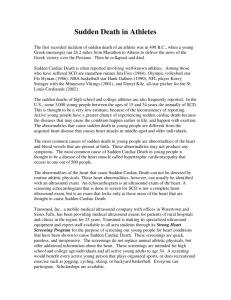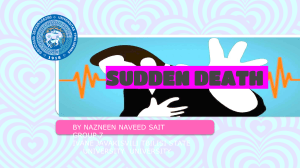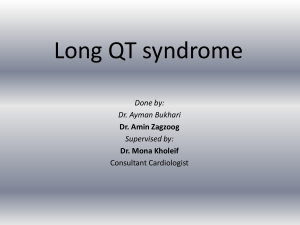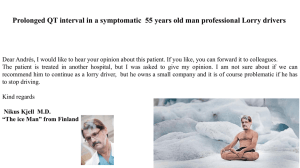Facts about SCD in the Young
advertisement
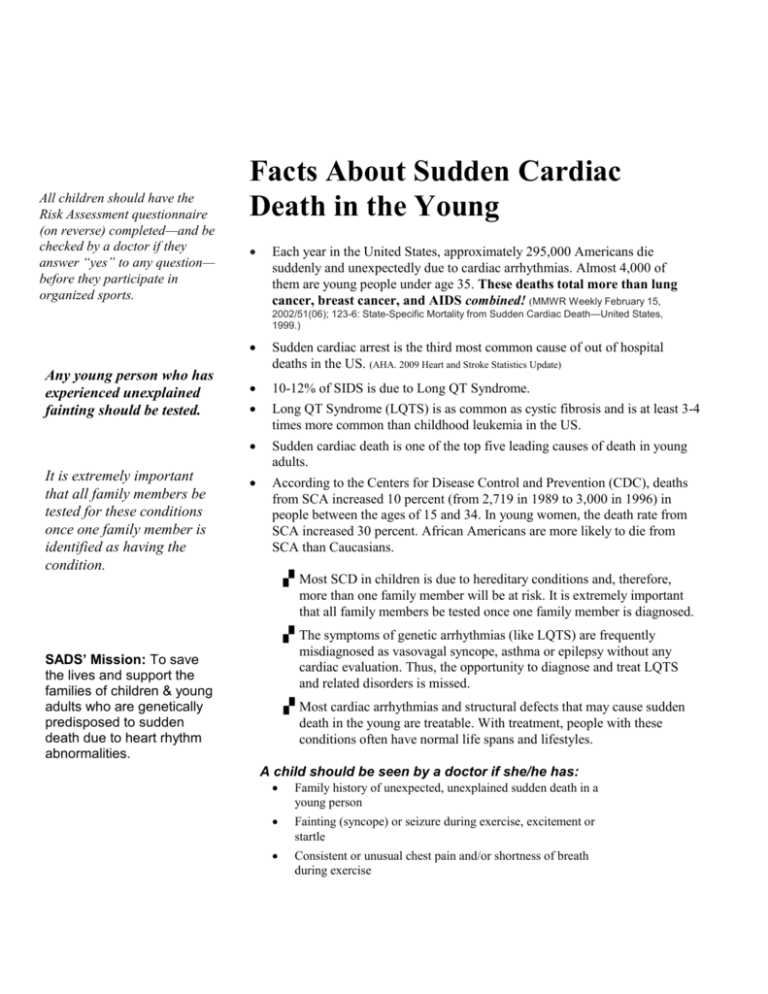
All children should have the Risk Assessment questionnaire (on reverse) completed—and be checked by a doctor if they answer “yes” to any question— before they participate in organized sports. Facts About Sudden Cardiac Death in the Young Each year in the United States, approximately 295,000 Americans die suddenly and unexpectedly due to cardiac arrhythmias. Almost 4,000 of them are young people under age 35. These deaths total more than lung cancer, breast cancer, and AIDS combined! (MMWR Weekly February 15, 2002/51(06); 123-6: State-Specific Mortality from Sudden Cardiac Death—United States, 1999.) Any young person who has experienced unexplained fainting should be tested. It is extremely important that all family members be tested for these conditions once one family member is identified as having the condition. Sudden cardiac arrest is the third most common cause of out of hospital deaths in the US. (AHA. 2009 Heart and Stroke Statistics Update) 10-12% of SIDS is due to Long QT Syndrome. Long QT Syndrome (LQTS) is as common as cystic fibrosis and is at least 3-4 times more common than childhood leukemia in the US. Sudden cardiac death is one of the top five leading causes of death in young adults. According to the Centers for Disease Control and Prevention (CDC), deaths from SCA increased 10 percent (from 2,719 in 1989 to 3,000 in 1996) in people between the ages of 15 and 34. In young women, the death rate from SCA increased 30 percent. African Americans are more likely to die from SCA than Caucasians. Most SCD in children is due to hereditary conditions and, therefore, more than one family member will be at risk. It is extremely important that all family members be tested once one family member is diagnosed. The symptoms of genetic arrhythmias (like LQTS) are frequently misdiagnosed as vasovagal syncope, asthma or epilepsy without any cardiac evaluation. Thus, the opportunity to diagnose and treat LQTS and related disorders is missed. SADS’ Mission: To save the lives and support the families of children & young adults who are genetically predisposed to sudden death due to heart rhythm abnormalities. Most cardiac arrhythmias and structural defects that may cause sudden death in the young are treatable. With treatment, people with these conditions often have normal life spans and lifestyles. A child should be seen by a doctor if she/he has: Family history of unexpected, unexplained sudden death in a young person Fainting (syncope) or seizure during exercise, excitement or startle Consistent or unusual chest pain and/or shortness of breath during exercise Pediatric Sudden Cardiac Death Risk Assessment Form Parents, answer these questions (or have your child’s doctor help complete them) every few years at these times: preschool, before/during middle school, before/during high school and before participating in organized sports. Patient History Questions: Yes No Has your child fainted or passed out DURING exercise, emotion or startle? Has your child fainted or passed out AFTER exercise? Has your child had extreme fatigue associated with exercise (different from other children)? Has your child ever had unusual or extreme shortness of breath during exercise? Has your child ever had discomfort, pain or pressure in his chest during exercise? Has a doctor ever ordered a test for your child’s heart? Has your child ever been diagnosed with an unexplained seizure disorder? Family History Questions Are there any family members who had an unexpected, unexplained death before age 50? (include SIDS, car accident, drowning, others) Are there any family members who died of heart problems before age 50? Are there any family members who have had unexplained fainting or seizures? Are there any relatives with certain conditions such as: Hypertrophic cardiomyopathy (HCM) Dilated cardiomyopathy (DCM) Aortic rupture or Marfan syndrome Arrhythmogenic right ventricular cardiomyopathy Long QT syndrome (LQTS) Short QT syndrome Brugada syndrome Catecholaminergic ventricular tachycardia Primary pulmonary hypertension Pacemaker Congenital deafness Please explain more about any “yes” answers here: If you answer yes to any of these questions, your doctor should check your child’s heart. For more information or if you need a referral to a heart specialist, contact: 1-800-STOP SAD (www.StopSADS.org) The life you save may be your child’s…or your own! Supporting Families. Saving Lives 508 E South Temple #202 Salt Lake City, UT 84102 800-STOP SAD 801-531-0937 fax 801-531-0945 www.StopSADS.org 2/16/2016
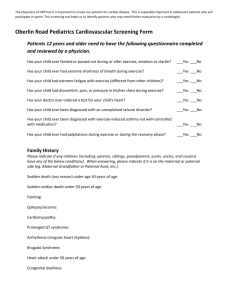
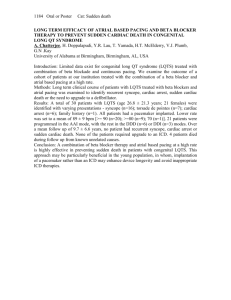
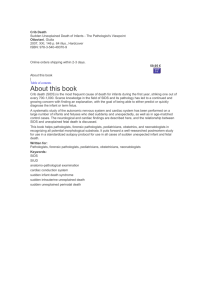
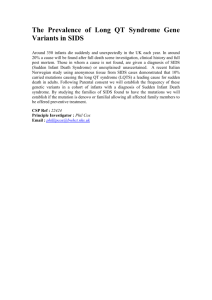
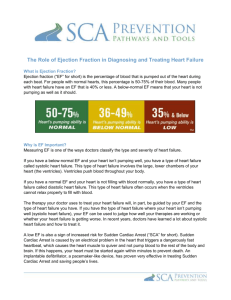
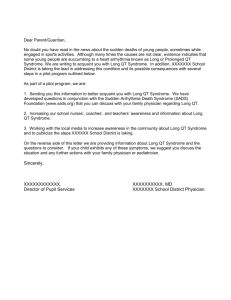
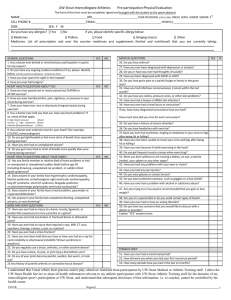
![[INSERT_DATE] RE: Genetic Testing for Long QT Syndrome Letter](http://s3.studylib.net/store/data/007372485_1-c0b69faa8e06692cadd2ba474060b7b4-300x300.png)
